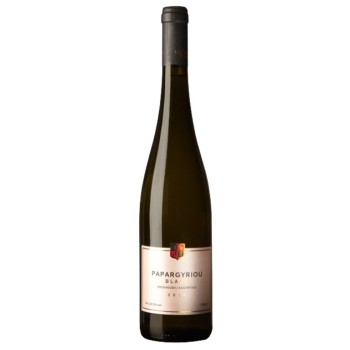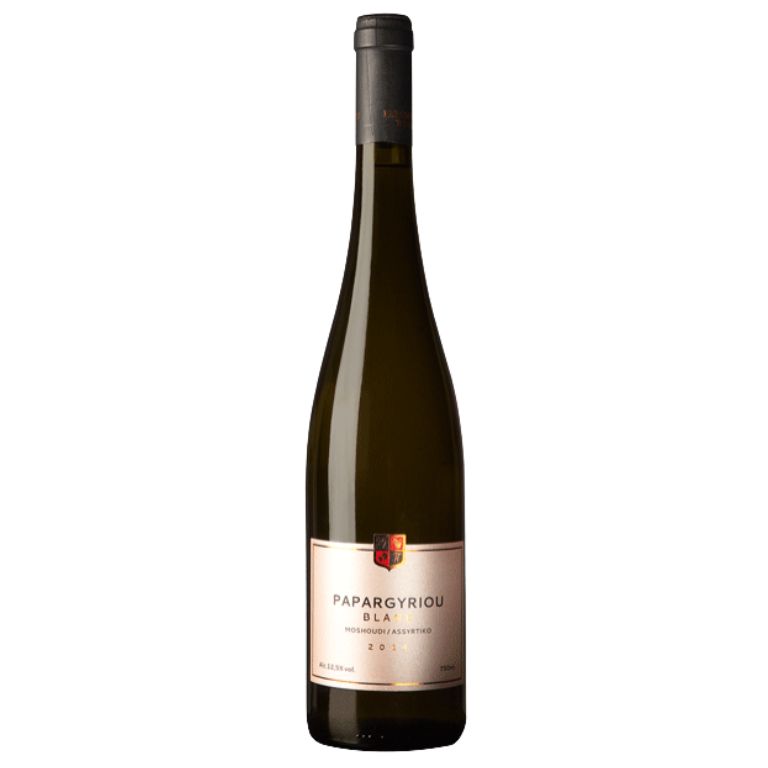

£18.50
per bottle (750 ml)
A very popular wine. A blend of the greatly performing in Greece Muscat and Assyrtiko grapes, grown at 850m, at Sofiana of Korinthia. The nose is dominated by Muscat, whereas the palate combines the fruitiness of the Muscat grape with the body and structure of the Assyrtiko grape. Drink it with salads, white meat, fish or oysters at 9-11°C.

Grapes
Assyrtiko
Assyrtiko is by far Greece’s most renowned white grape variety, associated most famously with the volcanic island of Santorini in the Aegean Sea. Following its notable success, it is now grown successfully all over Greece and beyond in Clare Valley, Australia, South Africa and California, being the first Greek grape to become international. It has developed a reputation as being a versatile grape variety, producing wines in a multitude of styles, from fresh, mineral white wines to oaked, worth keeping ones and from bold complex reds to rıch matured dessert wines, such as Vinsanto. Compact clusters of large, moderately thick-skinned berries, late budding and late ripening. Vigorous and productive, resistant to drought, disease and wind and capable of maintaining high acidity up to the final stages of the ripening period. In Santorini it is trained in the characteristic baskets, sitting close to the ground and named “kouloures” by the locals.
Muscat Blanc
Muscat Blanc à Petits Grains is a white wine grape of Greek origin that is a member of the Muscat family of Vitis vinifera. Its name comes from its characteristic small berry size and tight clusters. While technically a white grape, there are strains of Muscat Blanc à Petits Grains vines that produce berries that are pink or reddish-brown. The same vine could potentially produce berries of one colour one year and a different colour the next. Variants, where the differing grape colour is stable, are typically classified as separate grape varieties Muscat Rouge à Petit Grains for red skin colour and Muscat Rose à Petit Grains for pink skin colour.
Producer
Papargyriou
The winery’s founder, Aristidis Papargyriou, planted his first vineyards in 1978, with the aim to produce wines of high quality and distinctive character. He chose matched varieties with high potential for the region, such as Assyrtiko, Sauvignon Blanc, the local Muscat, Cabernet Sauvignon, Agiorgitiko and Mavrodaphne. In the early ‘90s, the first Papargyriou wines were released. Yannis, his son, with studies in Agriculture and winemaking at the famous Wine Institute of Geisenheim in Germany, has been continuing his work since then and expanded the family’s vineyard, originally to be found near the village of Lalioti, Corinthia, 120km to the west of Athens, to a new vineyard site at Sofiana, Corinthia, at 800-900m altitude. This splendid new vineyard of 16 hectares is giving grapes of superior quality and has raised the production to around 50000 bottles yearly.



